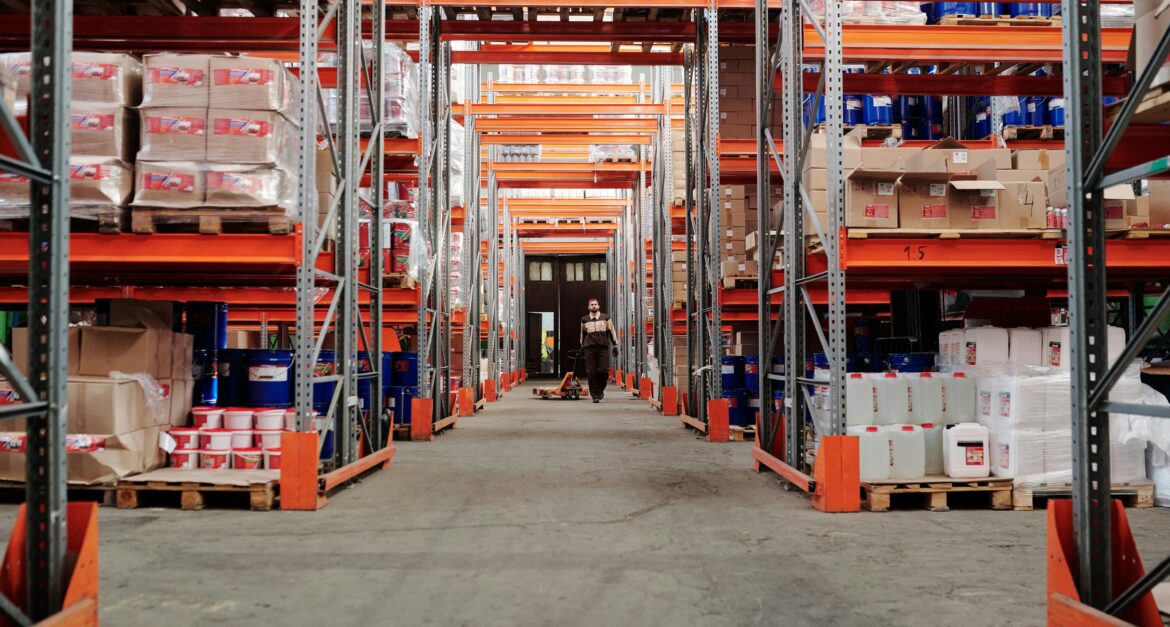
Are You Watching Your Profits Disappear in Saudi’s Supply Chain Maze?
The goods you are transporting are sitting at customs holding up for weeks, the transportation charges are killing your budget and, customers are getting weary of late orders. Daily supply chain disruption in Saudi Arabia is costing businesses thousands of riyals, in terms of lost revenue, relationships and opportunities. The disappointment of seeing competitors thrive when your operations are hampered by regulatory complexity, infrastructure shortfalls and logistics intermittencies in predictable performance is pounding business aspirations throughout the Kingdom.
Here is the game-changer that is altering the way in which successful businesses are implementing Saudi supply chains. The technology-based model of Palm Horizon simplifies the guesswork, minimized delays by 60 percent and truncated transportation costs by up to 25 percent. Studies to MENA, strategic partnerships, regulatory and intelligence expertise and the use of intelligent logistics systems are the tools that are helping companies to finally experience the operational excellence that sustains growth in the most dynamic market in the Middle East.
The path to transforming your supply chain begins by knowing precisely what challenges are bottlenecking your business and what the tested and trusted solutions are to achieve those results
What Are Saudi Supply Chain Challenges?
The Saudi supply chain issues involve the complicated operational, regulatory, and logistical problems that companies experience in transporting goods through Saudi transportation and distribution systems. These obstacles are related to a solely geographical position, regulations framework, and development patterns of infrastructural constructions in the country.
Saudi Arabia has a supply chain ecosystem that entails various stakeholders composed of customs offices, freight forwarders, warehouses, and transport companies. Every entity has a set of regulations to work in that is still developing as the Vision 2030 initiative.
As a result, these issues directly affect business performance, influencing order fulfillment times, inventory carrying costs, customer satisfaction levels, and overall efficiency. Moreover, unless companies take action to address these concerns, they will struggle to remain competitive in both local and international markets.
Top Challenges in Saudi Supply Chains
1. Customs Delays and Regulatory Complexity
Key Challenge Points:
- Various Documentation Requirements – Lengthy documentation in the form of SABER certificates, and SFDA, and SASO standards
- Multi-Agency Cooperation – Clearance involves approval of different agencies of the government and therefore has specific time lines
- Frequent Change of Regulations -iation/export regulations are constantly changing due to Vision 2030 efforts
- Classification Disputes – God Classification problems result in delay in processing times
- Physical inspections Protocols – The physical examination and compliance checks cause further delays
Effect on Business:
- Mean time to ship: 3-7 days (compared to 1-2 days in the developed countries)
- More holding costs and demurrage fees
- Unreliable delivery timescale and impacting on customer satisfaction
2. High Transportation Costs
Key Challenge Points:
- Geographic Distance – the 2.15 million km territory raises the costs related to the movement of the fuel and time
- Port Concentration – significant ports (Jeddah, Dammam) result in an inland distribution bottleneck
- Driver Shortages – There is not enough qualified commercial drivers available
- Additional Costs and Complexities of Cross Border Trading – More documentation and transit requirements of area trade
- Last-Mile Delivery – Extensive expense in far-flung locations and second cities
Factors of Cost Impact
- Transportation absorbs 8-15% of over-all product cost
- Therefore, businesses must carefully evaluate costs, since international deliveries are usually 20–30 percent higher than domestic routes.
- The delivery to remote areas is 3 times more expansive
3. Warehousing and Infrastructure Gaps
Key Challenge Points:
- Limited Contemporary Infrastructure – Lack of temperature-controlled and automated warehouse space
- Textile Area – Weaknesses in distribution centers in industrial belts
- Capacity Limitations – e-commerce sales and imports are increasing and outpacing available capacity
- Technology Integration – The facilities are mostly deprived of sophisticated system of inventory management
- Storage Rates – Storage rates vary widely among the major cities and even secondary markets
Infrastructure Challenges:
- Only 2/3 of warehouses are operating according to international standard
- Storage capacity that is controlled by temperature that is only available in major cities
- Lacunas in Connectedness between industrial locations and distribution hubs
4. Supply Chain Visibility and Tracking
Key Challenge Points:
- Limited Real-Time Information – Little view of shipment status and location
- Problems of Integration – Isolated platforms of carriers and service providers
- Manual Processes – Tracking systems are on paper creating information delays
- Management Issues – Various stakeholders with various communication systems
- Predictive Capabilities – No analytics tools to identifying proactive issue-resolving
5. Skilled Workforce Shortages
Key Challenge Points:
- Lack of Supply Chain Knowledge Proficiency – Limited professionals with expert supply chain knowledge
- Technology Skills – Lack of people trained on using new logistics technology
- Regulatory Knowledge – Limited experts with the insider knowledge of complicated Saudi compliance issues
- Language Barriers – Problems of communication in the business world of multilingualism
- Training Infrastructure – There are very few programs to train the logistics sector now.
Industries Served and Real-World Applications
Manufacturing Sector
Manufacturing firms in Saudi Arabia have special supply chain issues leaning towards raw material acquisition, procurement of components and distribution of fibre finishes. Automative industry, petrochemical industry, and consumer goods are some of the areas that need specialized Logistics.
Just-in-time manufacturing theory is hard to put into practice when the predictability of supply chain is busted by customs or transport hindrances. Companies have to carry increased safety levels of stocks which raises their carrying costs and working capital requirement.
Imported components and materials have quality control measures that should be harmonized with the customs authorities and a third party inspection services making procurement a more complicated process.
Retail and E-commerce
The penetration of digitalization into the retail business world, together with the shifts in consumer behaviours, puts pressure on the features of supply chain resilience and adaptability. The need to offer same-day and next-day delivery means having advanced distribution network.
Market demand fluctuations especially during the seasons is a seasonal effect that needs a flexible supply chain solution. Retailers face the challenge of optimum inventory in combination with the storage cost and the service quality that should not be compromised.
Cross border e-commerce fulfillment has additional complexities associated with Customs Clearance, Customs Duty Calculations and Returns processing that are specialist areas.
Healthcare and Pharmaceuticals
Pharmaceutical chains in Saudi Arabia have to meet strict temperature management procedures, tracking necessities, and standard supervision by Saudi FDA. Maintaining continuity of the cold chain during distribution of the product is essential to product performance and patient safety.
The imports of medical equipment entail specialised handling/coordination/installation assistance and after sales support that necessitate integrated logistics solutions. Other things facing emergency medical supplies are immediate customs clearance and priority transportation.
Any changes in the regulatory procedures of importation of drugs necessitate a need to always monitor and update supply chain practices in order not to compromise the importation processes of drugs.
Implementation Overview: Palm Horizon’s Solution Framework
Technology-Driven Logistics Management
Palm Horizon also has access to sophisticated supply chain management solutions that give visibility into the status of shipments, advancements in customs clearance and inventory position of goods in different locations simultaneously. Their tracking software is their own, combining with customs systems and carrier networks so they can give the right information to clients.
Digital freight forwarding functionalities make the company sort out documentation quicker, eliminate manual errors, and speed up the customs clearance procedures. Compliance automation lets them meet the requirements of changing rules and guarantees efficient operational performance.
Preventive analytics possibilities enable clients to make some predictions about the factors that might cause any disruption and develop some pro-active mitigation measures. Such a strategy minimizes the effects of unexpected difficulties on the functioning of businesses.
Comprehensive Customs Clearance Services
The customs brokerage services of Palm Horizon offers a blend of local know-how and global best practices to find a way in Saudi Arabia to go through the regulatory environment. Their staff is up to date on duties and the paperwork involved in import/exportation processes.
Our pre-clearance consultation services are used by clients to make correct filings and prevent most of the compliance problems resulting in delays. This forward acting saves plenty of time in clearance at reduced costs.
The firm has well-established lines with customs groups and authorities, which makes it easier to process complex products and have fast handling of priority cargo.
Integrated Warehousing and Distribution
Palm Horizon has well-situated warehouse storage facilities with modern inventory management systems and temperature control systems and security arrangements which conform to international procedures. These are the distribution centers to the local and the surrounding areas.
Value added services such as kitting, labelling, quality inspection, returns processing can be performed at the warehouse network and this reduces complexity and costs on the side of the clients.
The cross-docking possibilities create efficient consolidation and deconsolidation of the shipments and reduce the transportation costs at minimum levels, with delivery schedules being fulfilled.
Supply Chain Performance Comparison
| Challenge Area | Traditional Approach | Palm Horizon Solution | Performance Improvement |
| Customs Clearance Time | 3-7 days average | 1-3 days average | 60% reduction |
| Transportation Costs | Standard market rates | Optimized routing & consolidation | 15-25% cost savings |
| Inventory Accuracy | 85-90% typical | 99%+ with digital systems | 10%+ improvement |
| Order Fulfillment Speed | 5-10 days standard | 2-5 days expedited | 50% faster delivery |
| Supply Chain Visibility | Limited tracking | Real-time monitoring | Complete transparency |
Frequently Asked Questions
What are the most common causes of customs delays in Saudi Arabia?
Customs delays typically result from incomplete or inaccurate documentation, product classification disputes, inspection requirements, and coordination issues between multiple government agencies. Proper preparation and local expertise significantly reduce these delays.
How can businesses reduce transportation costs in Saudi supply chains?
Transportation cost reduction strategies include route optimization, load consolidation, carrier selection based on performance metrics, and strategic warehouse placement to minimize distance factors. Technology platforms enable better decision-making in these areas.
What warehousing solutions work best for Saudi market conditions?
Some of the best warehousing practices to apply in Saudi Arabia are temperature regulation systems, strategic location choice, latest technology in inventory management, and adherence, to the safety and security laws of the country.
How do regulatory changes impact supply chain operations in Saudi Arabia?
The regulatory changes involve the changes in documentation needs, product certification procedures, customs, and import/exports restrictions. The various changes should be closely monitored and companies should adjust their processes to ensure that they are compliant and that the processes perform effectively.
What technology solutions improve supply chain visibility in Saudi Arabia?
Integrated tracking systems, customs clearance tracking, inventory control, and predictive analytics tools enhance global supply chain visibility by providing real-time updates and early warnings of potential disruptions for supply chain managers.
Transform Your Saudi Supply Chain Operations
The issues encountered in Saudi Arabian supply chains are unique and will need expertise and innovative solutions to manage it by using both local and global best practices. Firms which consider these challenges in a proactive way can obtain great advantage concerning the cost efficiency of the company, high quality services and adapted to the market conditions.
The end-to-end supply chain management provided by Palm Horizon offers a quantifiable result in terms of technology integration, understanding regulations and operation excellence. Their ability to solve complex logistics problems has been proven to make them the best partner with businesses that wish to optimised their supply chain operations in Saudi.
Visit palmhorizonksa.com to discover how Palm Horizon’s solutions can transform your supply chain performance and support your business growth objectives in the Saudi market. Contact their expert team today to develop a customized strategy that addresses your specific operational challenges and delivers sustainable competitive advantages.





